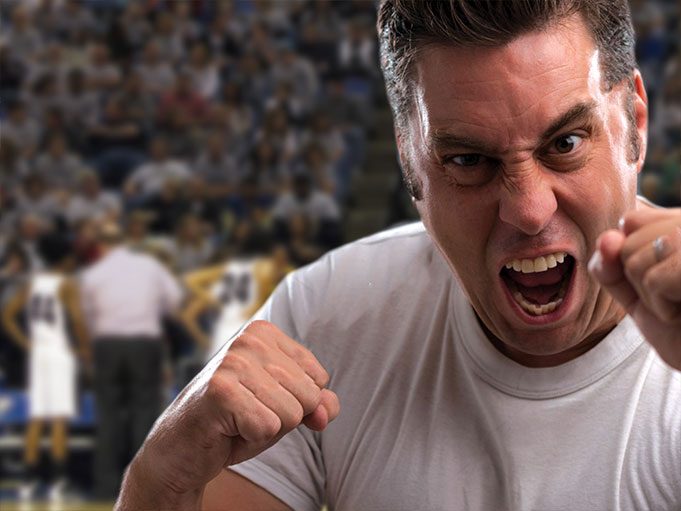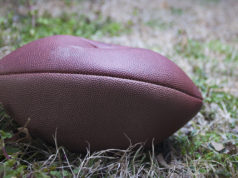Assaults against sports officials are drawing unprecedented attention. Many states have passed legislation designed specifically to protect sports officials from being attacked. More and more assaults are given media attention. It’s an unfortunate reality that officials must be aware of.
When a situation involving brawling fans and/or players escalates to the point where the game officials and the game administrator can’t control it, have the game administrator call the police to restore order. In most higher-level games (high school varsity and above) in high-profile sports (basketball and football, for example), uniformed police officers are already assigned to the game site. Know where the police are located so you can find them if you need them.
Get the police involved if you or your partner have been assaulted. File appropriate police reports and follow through with charges as appropriate. One way to help deter violence against officials is to stand up and fight it the proper way —in the judicial system. You do a disservice to the avocation if you’re involved in a physical altercation and decide to look the other way to avoid trouble.
What To Do If You’re Attacked
If you are a victim of a physical attack related to your officiating, attorneys say there are certain things you should and should not do.
- Don’t strike back to attack the player, coach or fan who assaulted you. If your attacker is injured due to your retaliation, you could be subject to criminal liability and/or a reduction of a potential monetary award. By fighting back physically, you may be placing yourself in a no-win situation.
- As soon as possible, obtain the names, addresses and phone numbers of witnesses. The information they supply may be critical to you and your attorney.
- Immediately write down a complete version of what occurred and how you were injured. If possible, be sure to include the names, addresses and phone numbers of your attacker(s), appropriate coaches/managers, your fellow official(s) and the scorers and timers. The more comprehensive your information, the better chance of a positive outcome.
- Determine if a recording of the game and incident have been made; if so, obtain a copy of that footage. Visual evidence can be of great value to you and your attorney.
- Don’t discuss the incident with anyone; simply gather information. Many times, what you say is misunderstood or misinterpreted, which may return to haunt you during litigation.
- Obtain competent legal counsel. Discuss whether you have a civil or criminal complaint to make against your attacker(s). If you are assaulted during or after a game you’ve worked, you have the right to pursue both civil and criminal actions. Those options should be discussed with legal counsel.
Review The Incident
Following any game in which you had an ejection or other unsportsmanlike conduct incident to deal with, ask yourself these important questions:
- Did I do anything to lead to the ejection?
- Did I challenge the player or coach?
- Did I lose self-control?
- Did my body language show I was the aggressor?
- Did I let the coach or player have a chance to get his or her emotions in check?
- Would I do anything differently the next time something similar occurs?
Take a hard look at yourself to see if there’s anything you could have done better. Ask your partners for their views or review the incident with respected veterans to gain further insight. Some bad situations can’t be prevented or avoided, but many can.
The next game. After your self-analysis of the difficult situation, your next challenge is getting mentally ready for your next game. You’ve got to learn from the incident, but you’ve also got to clear your head to officiate the next game. It’s unfair to the game and its participants for you to carry over bad feelings from one game into your next.
Be sure that you deal with the new challenges as you did before you had a negative incident. If you have a shorter fuse in your next game, you’re not mentally ready to officiate.
The biggest challenge is when you see the offender the next time, for example if you’ve ejected a coach and then work a game involving that coach a month later. You’ll find that many times the incident is forgotten by the coach; you need to forget it too. Sometimes, however, the bad feelings have festered in the offender for some time. Deal with it professionally at all times.
What's Your Call? Leave a Comment:
Note: This article is archival in nature. Rules, interpretations, mechanics, philosophies and other information may or may not be correct for the current year.
This article is the copyright of ©Referee Enterprises, Inc., and may not be republished in whole or in part online, in print or in any capacity without expressed written permission from Referee. The article is made available for educational use by individuals.
















